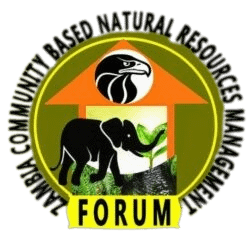The ZCBNRM Forum (COLANDS) Project shares Lessons during the Simalaha Bi-Annual Conference 2023.
The ZCBNRM Forum (COLANDS) Project shares Lessons during the Simalaha Bi-Annual Conference 2023
The Zambia Community Based Natural Resources Management Forum participated and being the key co-organisers for the Inaugural Conservancy Model in Zambia. This event attracted more than 5 countries in the Kavango-Zambezi (KAZA) Trans-frontier Conservation Area (Zambia, Namibia, Botswana, Zimbabwe and Angola) was held on 17-21 July 2023 in the Simalaha Conservancy, Zambia. The conference theme was: “Transfrontier conservation: Embracing the community conservancy model for inclusive biodiversity conservation and improved local livelihoods”. The event engaged various organisations and partners across the country with a goal of sharing conservation lessons.
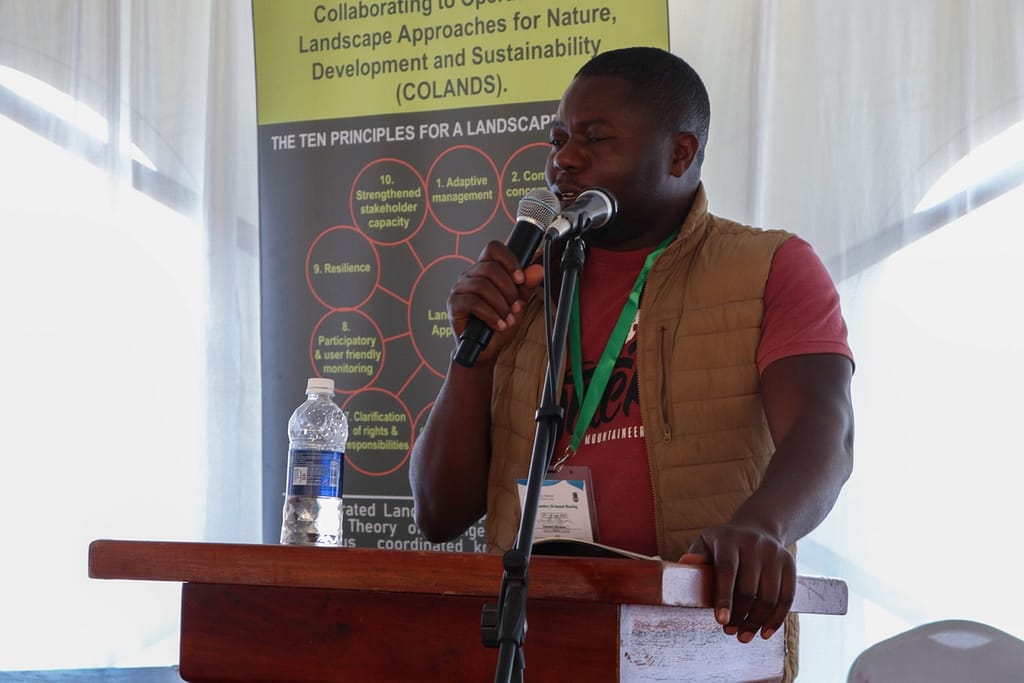
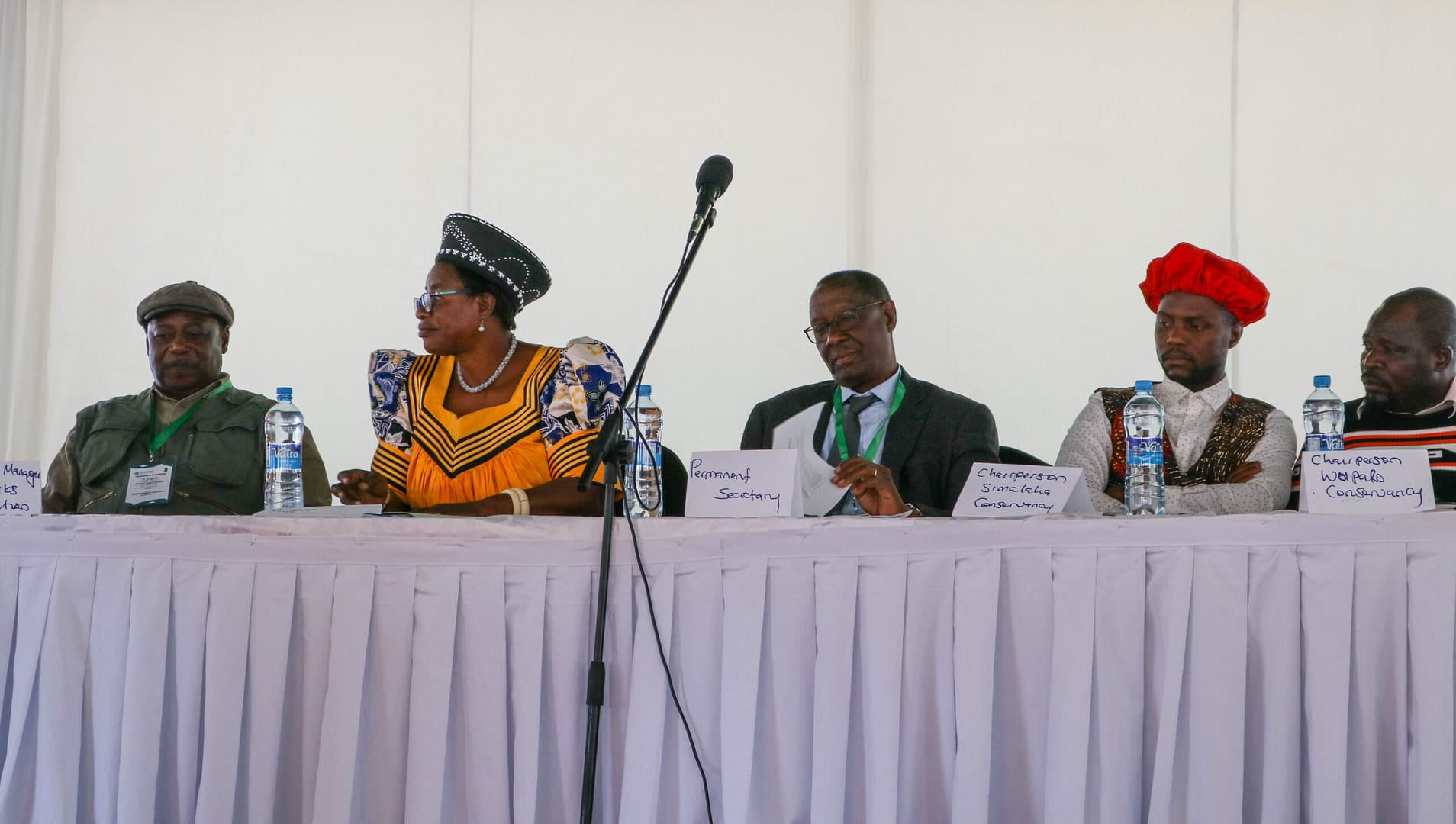
The event attracted about 380 participants from indigenous groups of the 5 states from governments, communities, non-governmental organisations (NGOs) and the private sector from the five countries attended the conference. They came to share their knowledge and experiences relating to sustainable development, biodiversity conservation, and good governance practices. The Event was graced with the Presence of the Permanent Secretary for Western Province and the District Commissioner for Mwandi District the host place.
One of the key activities was the Presentations by the different Countries and this enabled the Zambia CBNRMF present on the COLANDS Project among its key Projects and share a few lessons on the Integrated Landscape Approach (ILA), the Governance Project in different Landscapes and the Forest Landscape Restoration Projects.
(Photo by Mr Jafe Muzuri ).
For Zambia’s the event was a milestone in conservation as it’s the first and only communal conservancy which is the Simalaha and among some of the development and nurturing of the model were attributed to the collaborative efforts through the Transboundary Network and Engagements.
Key Note Takeaways
- This has been demonstrated in the Sharing of lessons at community ,district and National level in which the Stakeholder Engagement require close collaboration among various stakeholders to function properly. These include community members, government institutions, NGOs, private sector, indigenous organisations, and scientists. These stakeholders need platforms that encourage open dialogue, participation, and involvement in decision-making processes.
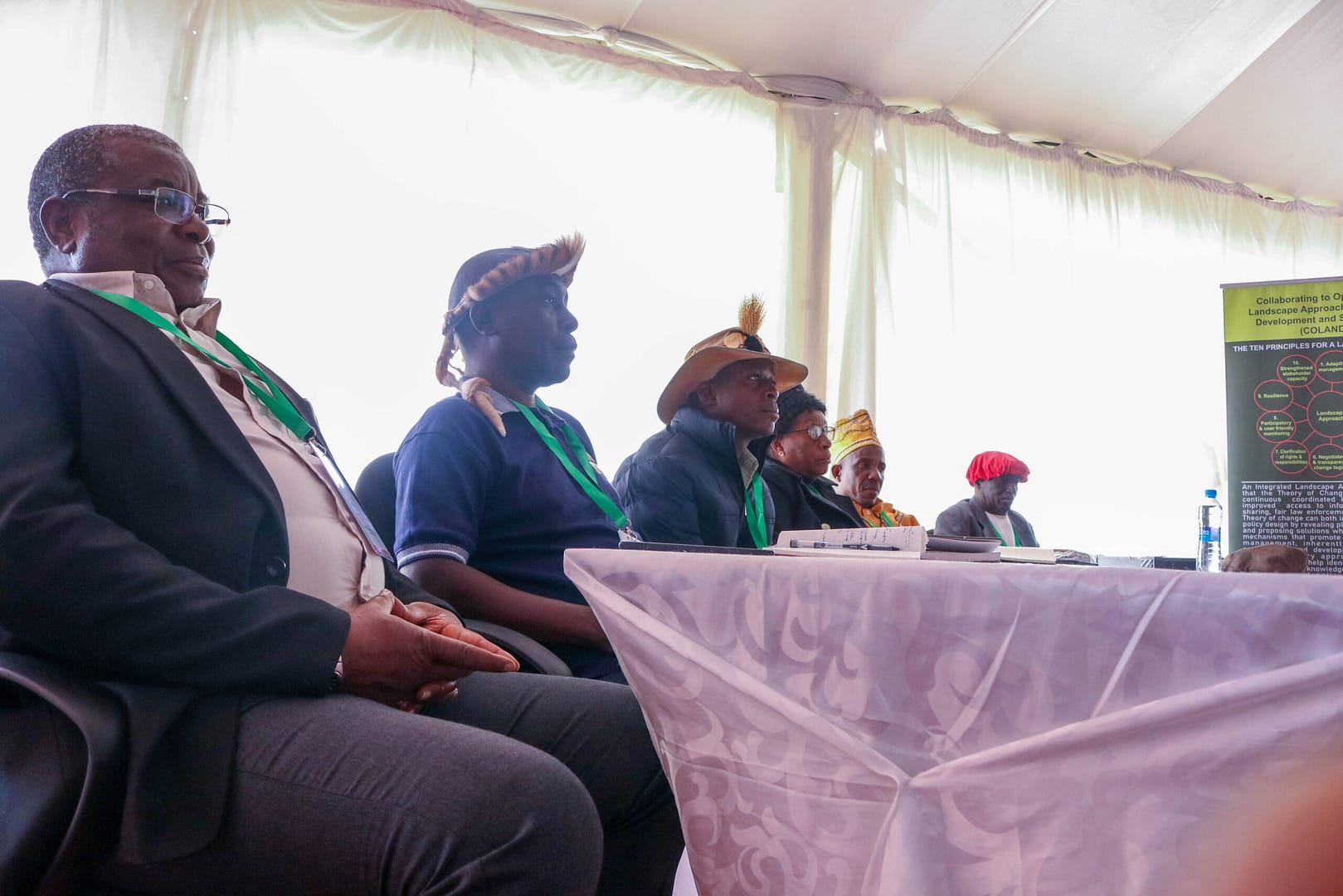
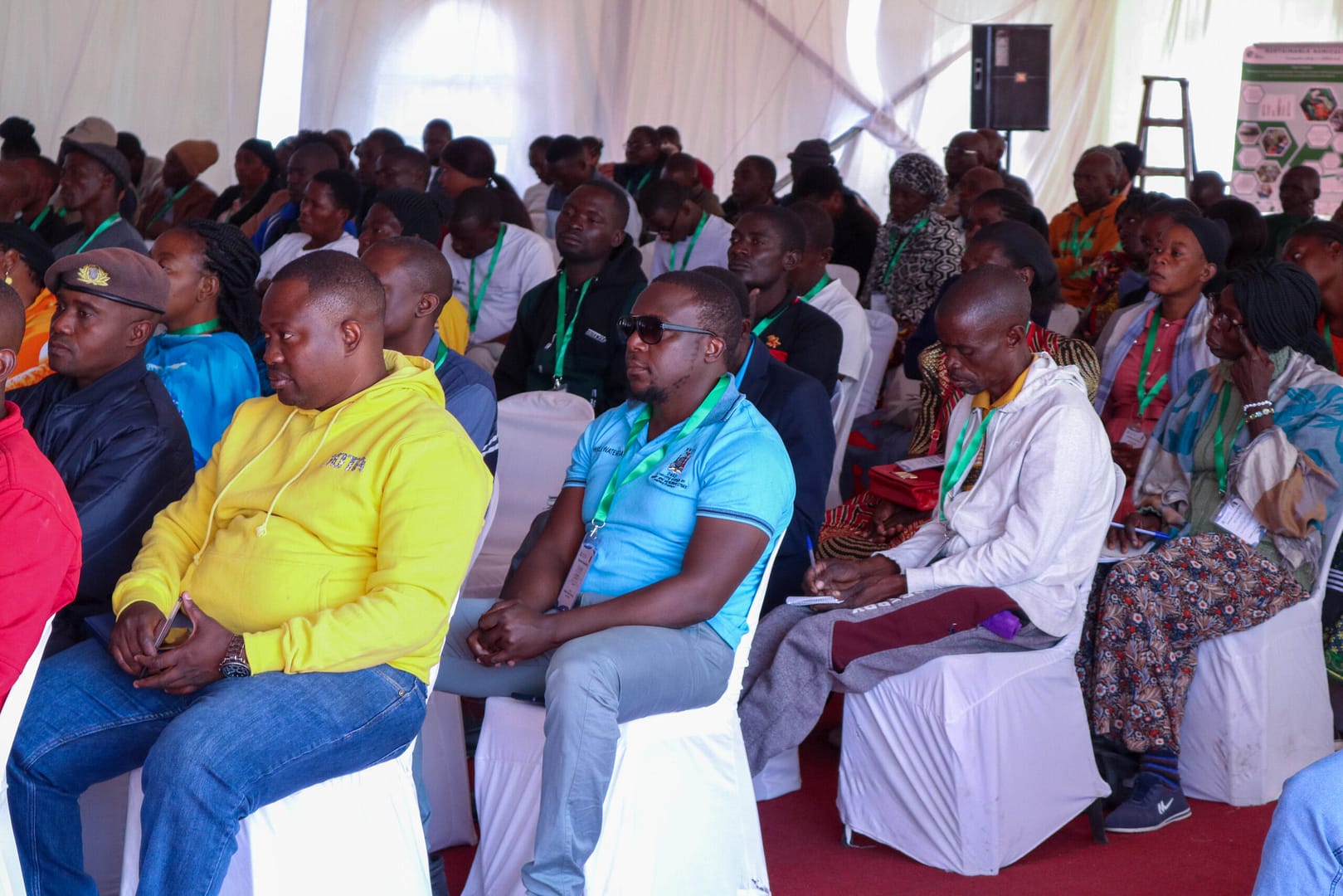
- Water shed Protection/Landscape Rehabilitation and restoration: Some areas within conservancies will require habitat restoration and/or wildlife reintroductions to become productive and attract investment from the private sector. Conservancies should therefore look to implement projects that restore degraded ecosystems, reforest deforested regions and reintroduce native wildlife where needed.
- Diversify the Alternative Livelihoods : As communities presented that one of the key drivers to destructive activities that exploit the biodiversity is lack of alternative livelihoods to support their households which builds up in community level has been one of the challenges across all the countries hence the development of and utilization of natural resources sustainably to ensure that local level activities included are agriculture, harvesting of Non Timber Forest Products, fishing, domestication of animals and other environmentally friendly economic sectors to provide business opportunities and equitable benefit sharing at all levels.
